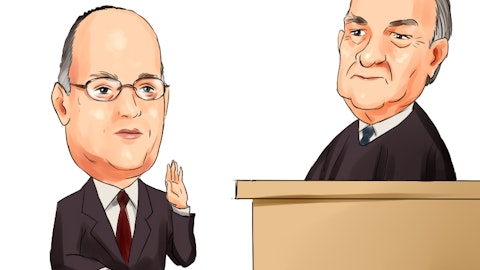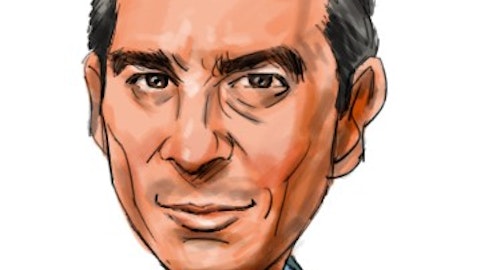According to economic theory, company insiders should avoid buying stock and in fact should generally tend towards selling shares (and diversifying their wealth) unless they are confident in the company’s prospects. Insider purchases should therefore signal this confidence, and in fact studies generally show a small outperformance effect for stocks bought by insiders (read our analysis of studies on insider trading). We track insider purchases and like to take a brief look at those where the purchase is large enough to be significant to see if the company might be a good buy. Read on for our quick take on five high yield stocks which at least one insider has bought recently:
An AT&T Inc. (NYSE:T) Board member’s trust bought 9,000 shares of the company’s stock in late July. At current prices and dividend levels, AT&T Inc. (NYSE:T) pays an annual yield of 5%; in addition, the telecom giant is quite defensive with a beta of only 0.2. The company’s financials are stable as well, with growth in wireless being canceled out by a decline in the wireline segment resulting in total revenue and earnings only changing by 1-2% compared to a year ago.

Another large company where an insider has been indirectly buying is commodities producer Freeport-McMoRan Copper & Gold Inc. (NYSE:FCX). With the stock down 13% in the last year against a market which has returned over 20%, the current dividend yield is now 4.3%. One contributing factor to the stock’s decline has been market disapproval over the company’s recent acquisition of two oil and gas companies; in addition to normal integration risk, it’s possible that this diversification could weaken management’s focus. Paulson & Co., managed by billionaire John Paulson, reported a position of 9 million shares at the end of Q1 (see Paulson’s stock picks).
One of the members of Philip Morris International Inc. (NYSE:PM)’s Board of Directors bought 1,000 shares of stock on July 23rd at prices around $89 per share.
The $150 billion market cap global cigarette company offers a 3.8% dividend yield- lower than many other cigarette companies, on the theory that there are still a good deal of growth opportunities in international markets. With growth being weak in many countries around the world, Philip Morris’s revenue and earnings decreased modestly last quarter compared to the second quarter of 2012. Renaissance Technologies, founded by billionaire Jim Simons, has been a significant shareholder in the company (research more stocks Renaissance owns).
An insider, as well as his children, recently bought shares of technology use-focused real estate investment trust Digital Realty Trust, Inc. (NYSE:DLR). Because REITs receive favorable tax treatment as long as they distribute a large share of taxable income to shareholders, they often pay high dividend yields. Digital Realty Trust’s annual yield is 5.7%, and unlike many REITs it has been consistently increasing its dividend for years even through the financial crisis. We’d note that the stock is down 21% year to date following a steep drop in July, but investors who are not already too exposed to REITs may want to consider it.
Another real estate investment trust which we’ve recorded an insider buying recently is Hersha Hospitality Trust (NYSE:HT). Hersha, an owner of hotel properties, did not perform well during the financial crisis and recession and so its dividend still has not recovered to its levels from the middle of 2008. The yield is still somewhat high, at 4.3%, but given the other opportunities available in REITs it might not be worth the risk. Ken Heebner’s Capital Growth Management initiated a position of 6.3 million shares in Hersha between January and March.
Disclosure: I own no shares of any stocks mentioned in this article.





